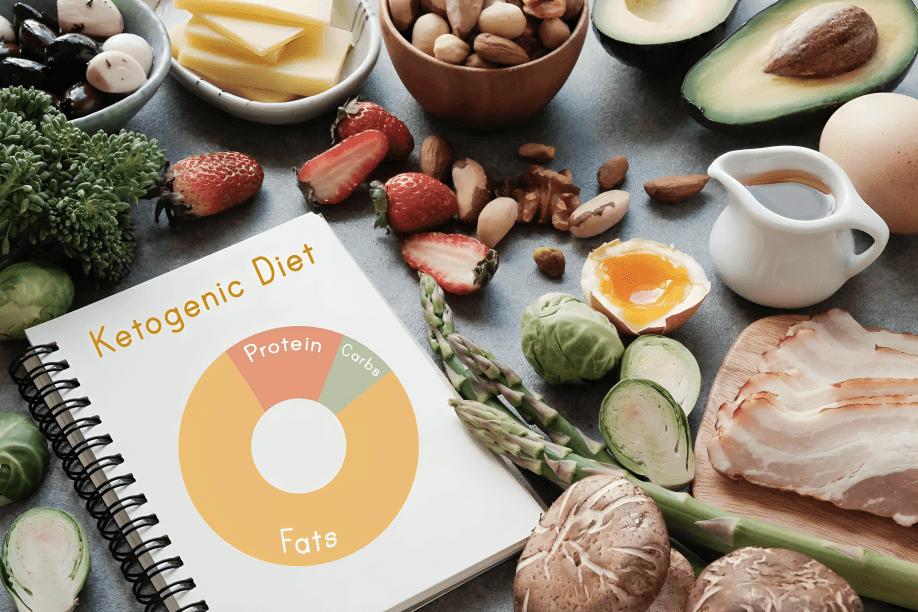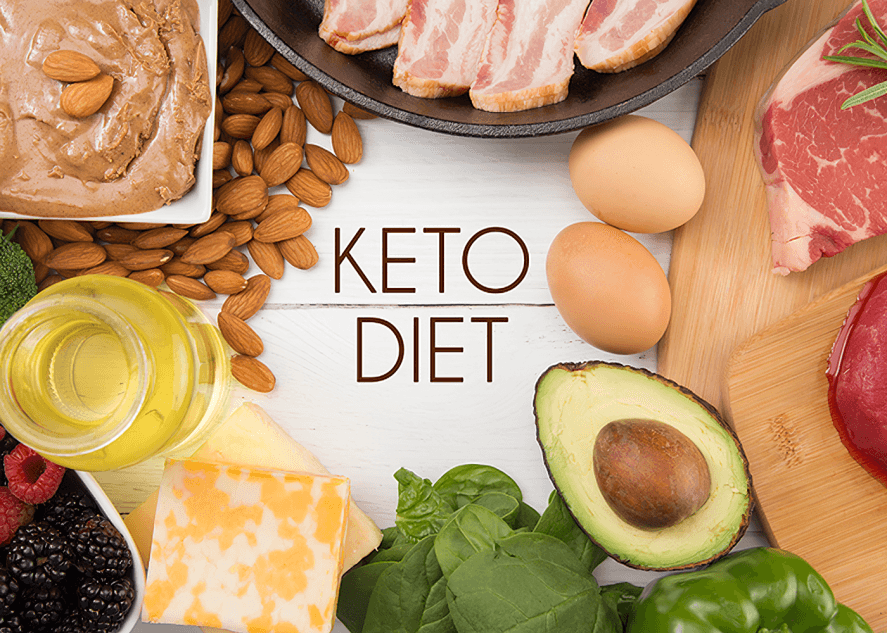
“
Understanding the plant-based vs. keto diet debate is key for anyone aiming to improve health or achieve specific wellness goals. While one relies on wholesome plant foods, the other focuses on fats and low carbs. Each offers unique benefits, but the right fit depends on your body, beliefs, and needs.1
1
”
Hippocrates, often called the "Father of Medicine," believed food should be our medicine—his principles align more with plant-based ideals, focusing on whole foods to maintain balance and prevention. 1
The plant-based vs. keto diet comparison often starts with macronutrients. Keto emphasizes fats and low carbs, while plant-based promotes high fiber, complex carbs, and limited fat intake. 2
The ketogenic diet can lead to quick weight loss by putting the body in ketosis, a state where it burns fat for fuel due to low carbohydrate availability, typically under 50 grams daily. 3

A plant-based diet is rich in fiber, which supports digestive health, feeds gut microbiota, and helps reduce cholesterol—benefits not commonly found in the low-fiber ketogenic approach.
Studies suggest that plant-based diets lower the risk of chronic diseases like type 2 diabetes, heart disease, and certain cancers, thanks to antioxidants, phytochemicals, and nutrient-dense foods. 4
The keto diet may help with epilepsy and neurological disorders, as ketone production has shown neuroprotective benefits—especially in children and patients resistant to conventional treatments. 5
The plant-based vs. keto diet debate includes sustainability. A plant-based lifestyle is environmentally friendly, requiring fewer resources like water and land compared to meat-heavy keto eating patterns. 6
Keto dieters often report decreased hunger due to high-fat meals, which promote satiety. This makes it easier for some to manage calorie intake without feeling deprived throughout the day. 7
A plant-based diet provides abundant vitamins like vitamin C, E, and folate from fruits and vegetables—essential nutrients that support immunity, cell repair, and mental health over the long term. 8

The keto diet often lacks key nutrients such as fiber, potassium, and magnesium unless carefully managed, making supplementation or diet adjustments necessary for balanced health.
Athletes on plant-based diets have reported improved endurance and recovery due to reduced inflammation and a higher intake of natural antioxidants found in whole plant foods. 9
Some people on keto experience the “keto flu” during adaptation. Symptoms like fatigue, headaches, and nausea occur as the body shifts from glucose to ketone-based energy. 10
A high intake of legumes, grains, fruits, and vegetables in plant-based diets supports long-term heart health, reducing the risk of hypertension and atherosclerosis significantly. 11
Keto diets may raise LDL cholesterol in some individuals, especially when high saturated fats are consumed, which contradicts goals for those with cardiovascular concerns or family risk factors. 12
People following a plant-based lifestyle often experience clearer skin and reduced acne flare-ups, attributed to lower dairy consumption and the anti-inflammatory properties of leafy greens and fruits. 13
The keto diet can improve blood sugar control in some individuals, particularly those with insulin resistance or pre-diabetes, by reducing glucose spikes from carbohydrate-rich meals. 14

Keto meals are often centered around meat, cheese, and oils, making it more challenging for vegetarians or vegans to follow this plan without significant modification and creativity.
Keto can offer mental clarity and enhanced focus for some, likely due to ketones being an efficient brain fuel. Many report better productivity once fully adapted to ketosis. 15
Plant-based diets are easier to maintain socially and culturally in many parts of the world, as plant foods are more accessible, familiar, and widely accepted in traditional cuisines. 16
Dr. Michael Greger, a leading advocate of evidence-based nutrition, supports plant-based diets as the most protective for preventing disease and extending life, emphasizing real science over food fads17


